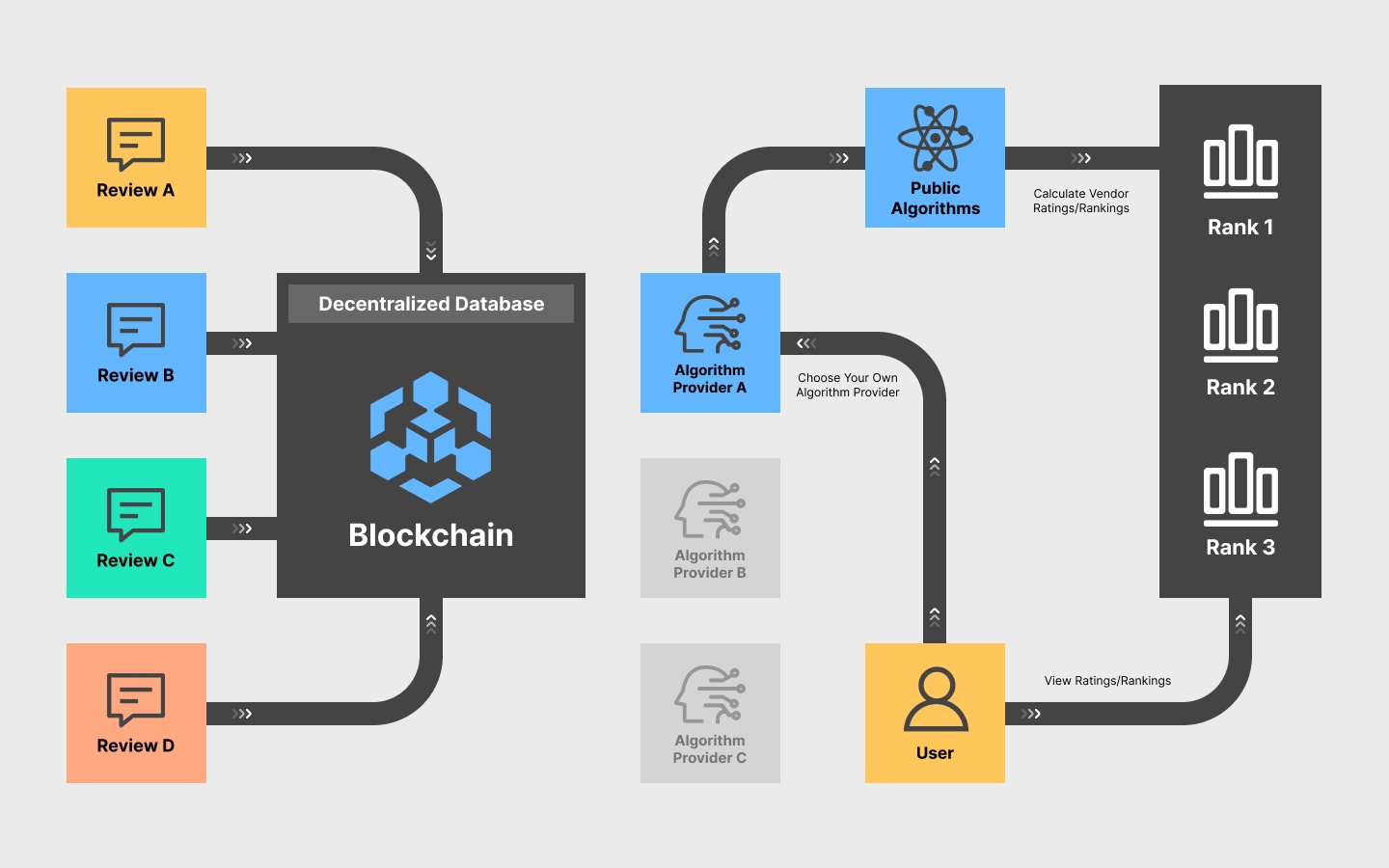Autonomous Reputation System
DIDs and VCs provide ways to identify yourself in a decentralized network, but how about ratings about others? This is where we need a reputation system. Reputation systems are very common in online platforms and communities. Consider the rating systems we use today, such as those found on popular review sites.
- Online review platforms like Yelp, IMDB, etc.
- Financial scoring like FICO Score, gather and aggregate claims to form a comprehensible reputation metric.
Problems with traditional reputation systems
Reputation systems are designed to allow participants to assess the credibility and reliability of others, thereby facilitating meaningful engagement and value exchange. However, traditional reputation systems are limited in following aspects:
- Centralization: User-generated ratings are stored opaquely in centralized databases, controlled by the platform.
- Customization limitations: Users cannot adjust how reputation metrics are calculated or select the reputation algorithms as needed.
- Manipulation risk: Some entities can exploit the system by paying for higher scores or better rankings, potentially distorting the reliability of these ratings.
Snowinning Protocol's decentralized approach
The Snowinning Protocol aims to build a decentralized reputation system based on DIDs and VCs, ensuring transparency, control, and trust:

Decentralized raw data collection:
User ratings are recorded directly on the blockchain through smart contracts, guaranteeing the authenticity and immutability of the data.
Open Algorithms:
Unlike traditional systems, Snowinning Protocol allows reputation algorithms to be transparent. Algorithm providers openly publish their methods, giving users the option to choose which algorithms they trust for generating scores or rankings.
Customized reputation processing:
Users can access the raw data and develop the insights based on their specific needs, ensuring a customized and fair reputation assessment.
Reputation distribution:
Reputation insights are distributed via a specialized Market Protocol, enabling users to access decentralized, reliable reputation data from multiple sources based on their needs.
Entity domains for a autonomous reputation system
In Snowinning Protocol, abstract entities don’t fall under traditional categories such as individuals or organizations but still need representation through DIDs. This is where entity domain comes into play. It enables abstract entities, such as movies, applications, or market makers, to have decentralized identities.
The primary goal of entity domains is to support protocols in creating reputation systems for these abstract entities. With this feature, we envision the development of Web3 versions of platforms like IMDb, Yelp, and LinkedIn, fostering a true decentralized autonomous and dependable reputation system.